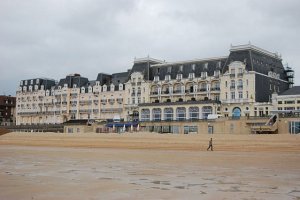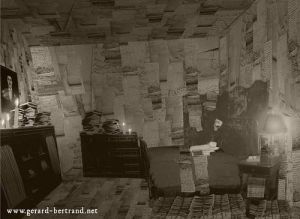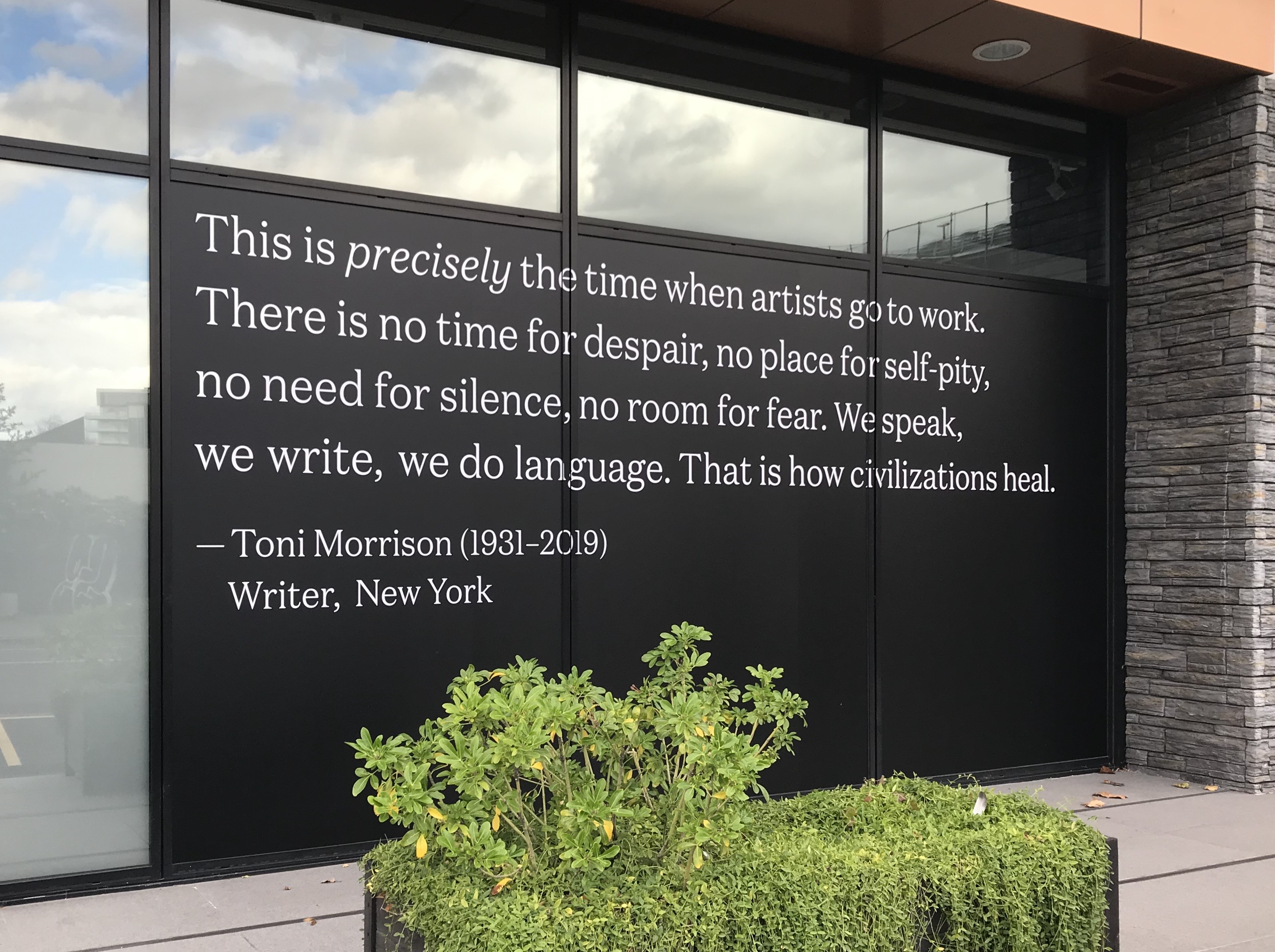August 2010 was a full month for me, for I was returning to work after a year’s sabbatical. This post was originally dated 20 August, a week before the start of classes, which may explain why I’d read only 12 pages. Of course, there could have been other impediments, including Proust’s writing, a dull point in the story’s progression, or even just sheer laziness. But let’s find out what occurred.
pp. 293-305
A busy week, so not much progress. But I digress.
A treat this week (for me, and, I hope for you): I’ll deconstruct one of Proust’s sentences. Not a long one–that would be way too difficult. Instead, I’ve chosen a shorter one that is still fairly typical of Proust’s style. Here it is:
Among the rooms which used most commonly to take shape in my mind during my long nights of sleeplessness, there was none that differed more utterly from the rooms at Combray, thickly powdered with the motes of an atmosphere granular, pollenous, edible and instinct with piety, than my room in the Grand Hôtel de la Plage, at Balbec, the walls of which, washed with ripolin, contained, like the polished sides of a basin in which the water glows with a blue, lurking fire, a finer air, pure, azure-tinted, saline.
“Ripolin” is paint. I’m sure you’ve figured out that Marcel is basically saying that the rooms at the Grand Hôtel are quite different from those at Combray. Those are the bare bones of this sentence, but Marcel packs in so much more. First of all, we get the initial bit of information–that he envisions many many rooms as he tosses in his bed each night (we knew this from the first section, “Combray”).
Then he shows us the rooms at Combray: “thickly powdered …” etc. The air in these rooms seems thick, almost liquid, “edible”. Full of grains and pollen and imbued (“instinct”) with piety. Note Moncrieff’s syntactic inversion in the phrase “an atmosphere granular, pollenous, edible and instinct with piety”, where he places the adjectives after the noun they describe (thus giving us the French flavor of Proust’s original, “une atmosphère grenue, pollinisée, comestible et dévote” — but raising the question of why Moncrieff translated dévote as “instinct with piety” rather than “pious”).
Then the rooms at the Hôtel: Proust compares the painted walls to a basin of clear water. But this part is complicated, because you have to read carefully through all the commas, to figure out what the walls contain. They contain the “finer air, pure, azure-tinted, saline”; that is, air finer than what the walls at Combray hold.
Combray is in the countryside near Paris, Balbec is by the sea. This sentence reveals differences between the countryside and the shore that one senses rather than sees. Anyone who’s been to the ocean after a long time inland will recognize the difference that Marcel describes with such particular detail.
That’s as far as I’ll go with that analysis. But imagine doing something along those lines several times per page, for 2000+ pages! Sometimes my mind glides over these, but sometimes I HAVE to stop and figure out what he’s doing. I know some of the credit goes to Moncrieff, but Proust, even in English, is a gorgeous writer.
So, the plot so far: Marcel is back as an active character (the bit about Swann’s affair with Odette happened before Marcel was on the scene). He was hoping to travel to Venice, but an illness has limited his travels to within Paris, particularly to the Champs-Elysées, where, as luck would have it, he has his second encounter with Gilberte (Odette’s daughter).
And suddenly, we’re back in the world of obsession and disappointment, where the woman (or girl — here, Gilberte) tortures the hero (Marcel) by sometimes showing up and sometimes not. Poor Marcel. It can only end badly.
Three addenda: First, Roger Shattuck adds Venice, despite the canceled trip, to the list of critical “places” in Search, alongside Combray, Paris, Balbec, and Doncières. Shattuck writes, “The image of Venice haunts [Marcel] all his life until he finally makes the journey with his mother long after the desire to do so has passed.” Once again, that theme of disappointed desire.
Second (and no surprise), fictional places in Search, as with Proust’s fictional characters, have their twins in real life. In 1971, Illiers changed its name to Illiers Combray to recognize its role as inspiration for Proust’s novel (despite Auteuil laying its own claim to that role). Balbec’s real-life counterpart is Cabourg, on the English Channel. Proust evidently spent 2 months every summer there for several years, rising late, visiting the casino next door, and then writing long into the night. According to Adrian Tahourdin on the TLS Blog, “As the Proust scholar and biographer Jean-Yves Tadié wrote, “it all began in the Grand Hôtel”. The Hotel’s website offers bookings for a “Memorable Moment”–the Hotel’s chef leads a one-hour class on making madeleines–and lists Le Balbec as one of the Hotel’s restaurants.
Third, for anyone with the linguistic chops, here’s Proust’s original sentence, the first in the section “Nom de pays: le nom”:
Parmi les chambres dont j’évoquais le plus souvent l’image dans mes nuits d’insomnie, aucune ne ressemblait moins aux chambres de Combray, saupoudrées d’une atmosphère grenue, pollinisée, comestible et dévote, que celle du Grand-Hôtel de la Plage, à Balbec, dont les murs passés au ripolin contenaient, comme les parois polies d’une piscine où l’eau bleuit, un air pur, azuré et salin.




As you’ve said, Proust’s sentences wander so much that one loses sight of any principal subject-object-verb structure in the welter of subordinate phrases. But what sensuality! They’re like film sequences with long, slow tracking shots around a room, no dialogue, no distracting subtitles, where one’s gaze eagerly darts around trying to fix on what may or may not be significant, anticipating some action or movement which never comes.
Luckily the quote you give is mostly intelligible to me so that I didn’t have to go scurrying to a dictionary and break the spell! I also found speaking the text out loud and languorously helped a lot … 🙂 (I wonder what Proust would have made of emoticons? Probably despised them on sight, I shouldn’t wonder, as the recourse of the literally challenged!)
LikeLiked by 1 person
“anticipating some action or movement which never comes” is an apt description of much of my experience reading Proust, Chris. I’ve had to draw on all my stubborn persistence to keep going — and yet, the payoff is sublime.
I don’t know about languorously reading aloud, but I think it does help to read in the bath!
LikeLiked by 1 person